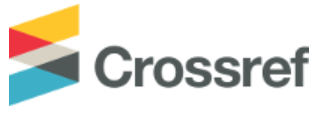Title:
Students Mathematics Learning Achievement from Mathematics Teacher Performance and Principal Managerial Competencies Point of View
Author:
Abstract
Keywords
Full Text:
PDFReferences
ACTEQ. (2003). Towards a learning profession. https://doi.org/10.1163/9789087901332_018
Ada, J. H. & Azisah, S. (2016). The contribution of teachers’ pedagogical competence toward the effectiveness of teaching of english at MTs N Balang-Balang. ETERNAL (English, Teaching, Learning and Research Journal), 2(2), 238–251. https://doi.org/10.24252/eternal.v22.2016.a5
Al-Safran, E., Brown, D., & Wiseman, A. (2000). The effect of principal's leadership style on school environment and outcome. Research in Higher Education Journal, 22. 1–19.
Arhipova, O., Kokina, I., & -Michaelsson, A. R. (2018). School Principal’s management competencies for successful school development. Tiltai, 78(1), 63–75. https://doi.org/10.15181/tbb.v78i1.1757
Bertschy, F., Künzli, C., & Lehmann, M. (2013). Teachers’ competencies for the implementation of educational offers in the field of education for sustainable development. Sustainability (Switzerland), 5(12), 5067–5080. https://doi.org/10.3390/su5125067
Block, E., Crochet, F., Jones, L., & Papa, T. (2012). The importance of teacher’s effectiveness. In Creative Education (Vol. 03). https://doi.org/10.4236/ce.2012.326173
Bredeson, P. V. & Johansson, O. (2000). The school principal’s role in teacher professional development. Journal of In-Service Education, 26(2), 385–401.
https://doi.org/10.1080/13674580000200114
Carmichael, C., Muir, T., & Callingham, R. (2017). The impact of within-school autonomy on students’ goal orientations and engagement with mathematics. Mathematics Education Research Journal, 29(2), 219–236.
https://doi.org/10.1007/s13394-017-0200-z
Cochrane, R. & McGettigen, A. (2019). Euclidean geometry. In The Edinburgh Edition of Thomas Reid: Thomas Reid on Mathematics and Natural Philosophy. https://doi.org/10.1093/oseo/instance.00250641
Drovnikov, A. S., Nikolaev, E. L., Afanasev, A. S., Ivanov, V. N., Petrova, T. N., Tenyukova, G. G., … Povshednaya, F. V. (2016). Teachers professional competence assessment technology in qualification improvement process. International Review of Management and Marketing, 6(1), 111–115.
Farah, A. I. (2013). School management: Characteristics of effective principal. International Journal of Advancement in Research & Technology, 2(10), 168–173. https://doi.org/10.1037/pac0000198
Fauzi, M. & Rokhmat, J. (2018). Principal’s managerial skill in improving teachers’ performance. IOSR Journal of Research & Method in Education, 8(3), 77–81. https://doi.org/10.9790/7388-0803047781
Forman, S. L. & Steen, L. A. (1999). Beyond eighth grade: Functional mathematics for life and work. Illinois: National Centre for Research in Vocational Education.
Gedviliene, G. (2015). The development of social competence of teachers and students: self-assessment research. Tiltai, 72(3), 91–103. https://doi.org/10.15181/tbb.v72i3.1168
Ghozali, I. (2009). Aplikasi analisis multivariate dengan program SPSS (IV). Semarang: Universitas Diponogoro.
Gloria, N. (2016). Management competency needs of principals for effective administration of secondary schools in Nigeria. International Journal of Advanced Research in Education & Technology (IJARET), 3(3), 61–67.
Gulevska, V. & Atanasoska, T. (2015). Enhancing teacher competencies with emotional and ethical capacity. International Journal of Cognitive Research in Science, Engineering and Education, 3(2), 85–90.
Habibi, B. (2015). The Influence of principal managerial competence and work motivation on teacher professionalism of vocational high schools. Dinamika Pendidikan, 10(2), 119–124. https://doi.org/10.15294/dp.v10i2.5104
Hakim, A. (2015). Contribution of competence teacher (pedagogical, personality, professional competence, and social) on the performance of learning Adnan. The International Journal Of Engineering And Science (IJES), 4(2), 1–12.
Harahap, F. (2017). The Influence of principal managerial competency toward teachers’ productivity and organizational citizenship behavior (OCB) by mediation of interpersonal communication of state vocational high school (SMK) South Tapanuli, North Sumatera. IOSR Journal of Humanities and Social Science, 22(01), 29–39. https://doi.org/10.9790/0837-2201062939
Igomu, C., Dauda, A., & Saleh, A. (2013). Principals managerial competence as a correlate of students’ academic performance in Ecwa secondary schools in North Central Nigeria. Journal of Education and Practice, 4(4), 247–256.
Ilanlou, M. & Zand, M. (2011). Professional competencies of teachers and the qualitative evaluation. Procedia-Social and Behavioral Sciences, 29. 1143–1150. https://doi.org/10.1016/j.sbspro.2011.11.348
Jamali, A. & Prasojo, L. D. (2013). Pengaruh kompetensi manajerial kepala sekolah, lingkungan, motivasi guru, terhadap prestasi siswa SMA Muhammadiyah Kota Yogyakarta. Jurnal Akuntabilitas Manajemen Pendidikan, 1(1), 8–21. Retrieved from https://journal.uny.ac.id/index.php/jamp/article/view/2309/1912
Jan, H. (2017). Teacher of 21st century: Characteristics and development. Research on Humanities and Social Science, 7(9), 2225–0484. Retrieved from www.iiste.org
Kheruniah, A. E. (2013). A teacher personality competence contribution to a student study motivation and discipline to fiqh lesson. International Journal of Scientific & Technology Research, 2(2), 108–112.
Krasnoff, B. (2015). Leadership qualities of effective principals. Education Northwest, 1–10. Retrieved from http://nwcc.educationnorthwest.org/sites/default/files/research-brief-leadership-qualities-effective-principals.pdf
Lord, H. (1973). Ex Post facto studies as a research method. Special Report Number, 1–14. Retrieved from http://scholar.google.com/scholar?hl=en&btnG=Search&q=intitle:Ex+Post+Facto+Studies+as+a+Research+Method#1
Mizambaeva, F. K. & Baimyrzaev, K. M. (2019). Conditions for the formation of professional competence of an intending geography teacher. Espacios, 40(9).
Mustamin, N. & Yasin, M. A. M. Bin. (2012). The competence of school principals: what kind of need competence for school success? Journal of Education and Learning (EduLearn), 6(1), 33. https://doi.org/10.11591/edulearn.v6i1.188
Nabila, H. (2016). The influence of pedagogic competence and professional competence to performance of teachers social studies in Trowulan District. International Conference on Ethics of Business, Economics, and Social Science, 556–565.
NASSP. (2013). Leadership matters: What the research says about the importance of principal leadership. https://doi.org/10.7748/mhp.19.3.11.s12
Nessipbayeva, O. (2012). The competencies of the modern teacher. International Perspectives on Education, 148–154. Retrieved from http://bit.ly/2fRwNoY
OECD. (2008). Teachers matter: Attracting, developing and retaining effective teachers. In Education and Training Policy. https://doi.org/10.1787/9789638739940-hu
Osborne, J. W. & Waters, E. (2003). Four assumptions of multiple regression that researchers should always test. Practical Assessment, Research, and Evaluation, 8(2), 1–5.
Ozmen, F. & Muratoglu, V. (2010). The competency levels of school principals in implementing knowledge management strategies: The views of principals and teachers according to gender variable. Procedia-Social and Behavioral Sciences, 2(2), 5370–5376. https://doi.org/10.1016/j.sbspro.2010.03.875
Pont, B., Nusche, D., & Moorman, H. (2010). Improving school leadership. In Improving School Leadership (Vol. 1). https://doi.org/10.1787/9789264082915-et
Schmidt, W. H. (2004). A vision for mathematics. Educational Leadership, 61(5), 6–11.
Selvi, K. (2010). Teachers’ competencies. Cultura International Journal of Philosophy of Culture and Axiology, 7(1), 167–175.
https://doi.org/10.5840/cultura20107133
Shapiro, S. (2009). The Oxford handbook of philosophy of mathematics and logic. The Oxford Handbook of Philosophy of Mathematics and Logic, 1–832. https://doi.org/10.1093/oxfordhb/9780195325928.001.0001
Sun, J. C. Y. & Wu, Y. T. (2016). Analysis of learning achievement and teacher-student interactions in flipped and conventional classrooms. International Review of Research in Open and Distance Learning, 17(1), 79–99. https://doi.org/10.19173/irrodl.v17i1.2116
Taniredja, T. & Abduh, M. (2016). Pedagogical, personality, social and professional competence in correlation with teachers’ performance (Correlational study of junior high school teacher at SMPN 3 Purwokerto). The 2nd International Conference on Science, Technology, and Humanity, (January), 264–272. Retrieved from https://www.researchgate.net/publication/322488952_Pedagogical_Personality_Social_and_Professional_Competence_in_Correlation_with_Teachers’_Performance_Correlational_Study_of_Junior_High_School_Teacher_at_SMPN_3_Purwokerto
The Georgia Vision Project. (2017). Education system components. Georgia.
The Wallace Foundation. (2013). The school principal as a leader: Guiding schools – Wallace Foundation. The Wallace Foundation, 11(January), 41–56. Retrieved from http://www.wallacefoundation.org/knowledge-center/pages/the-school-principal-as-leader-guiding-schools-to-better-teaching-and-learning.aspx
Unicef. (2007). A human rights-based approach to education for all. In Practice.
Victor, A. A. (2017). Analysis of principals’ managerial competencies for effective management of school resources in secondary schools in Anambra State, Nigeria. International Journal of Social Sciences, Humanities, and Education, 1(4), 236–245.
Wardoyo, C. (2015). The Measurement of Teacher’s personality competence and performance using embedded model. Journal of Education and Practice, 6(26), 18–24.
Wegner, C., Minnaert, L., & Strehlke, F. (2013). The importance of learning strategies and how the project “Kolumbus-Kids” promotes them successfully. European Journal of Science and Mathematics Education, 1(3), 137–143. Retrieved from www.Kolumbus-Kids.de
DOI: https://doi.org/10.31002/ijome.v3i2.3375
Article Metrics
Abstract view : 0 timesPDF - 0 times
Cited By
Refbacks
- There are currently no refbacks.
Copyright (c) 2021 Indonesian Journal of Mathematics Education

This work is licensed under a Creative Commons Attribution-NonCommercial-ShareAlike 4.0 International License.

This work is licensed under a Creative Commons Attribution-NonCommercial-ShareAlike 4.0 International License.
Indexed by:
ISSN: 2654-3907 (print) | 2654-346X (online)
Jalan Kapten Suparman No.39, Magelang, Jawa Tengah, Indonesia 56116
Phone (0293) 364113 Fax. (0293) 362438
Website : http://jurnal.untidar.ac.id/index.php/ijome









 Abstract views : 0
|
Abstract views : 0
| PDF views : 0
PDF views : 0



